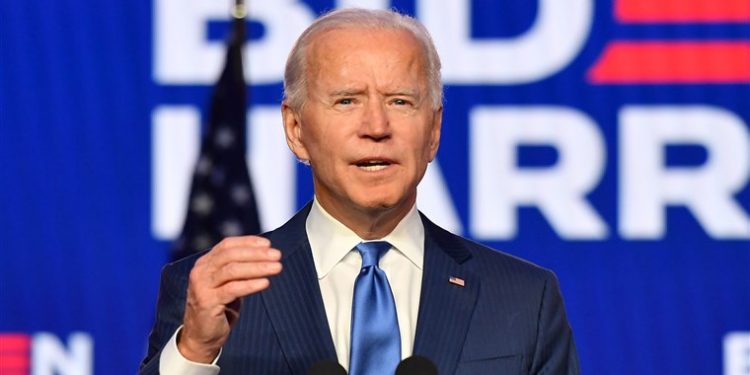New York: Joe Biden, who has been declared president-elect by the media, has unveiled his own version of an ‘America First’ economic plan pledging “to buy American” with a stringent requirement for government contractors to manufacture locally.
“We can make sure a future is made here in America, and that’s good for business and it’s good for American workers,” he declared Monday.
“From autos to our stockpiles, we’re going to buy American. No government contract will be given to companies that don’t make their products here in America.”
Signalling a potential change from President Donald Trump’s heavy-handed approach to trade that imposed or threatened punitive tariffs, Biden said: “I’m not looking for punitive trade. The idea that we are poking our finger in the eyes of our friends and embracing autocrats makes no sense to me.”
One of Trump’s biggest targets for punitive trade measures, though, was China, but his trade policies adversely affected India and Western Europe among others.
Biden, who ran on the slogan, “Build Back Better”, outlined his economic agenda at a news conference in Wilmington after a virtual meeting with business and trade union leaders.
CEOs Satya Nadella of Microsoft and Sonia Syngal of the GAP Inc retail clothing chain were among the participants.
The “buy American” aspect of Biden’s economic plan is a response to the deindustrialisation of the US under the previous administrations and the job losses, which Trump capitalised on with an “America First” agenda of bringing industries and employment back to the US.
The total value of federal US contracts, both goods and services, was $594 billion, according to Bloomberg Government information service.
Given the inter-dependency of manufacturing capabilities and the global supply chains, a strict requirement to make everything locally would be almost impossible.
Biden left wiggle room by not stipulating that everything the government buys would have to be made in the US, but rather stating only that the contractors would have to make products domestically.
He will also have to contend with the World Trade Organization that he once boosted and retaliatory trade measures, which he could try to skirt by limiting his decree to government contracts.
Setting a longer time-frame for his domestic manufacture push, his plan calls for massive investments in research and in new industries for the US to secure its place as the world leader, a position that is beginning to slip away.
“To secure our position as a global leader in research and development, we’re going to invest $300 billion in the most critical, competitive new industries in technologies creating three million good-paying jobs,” Biden said.
His ‘Build Back Better’ plan’s other foundations are promoting green industries to fight climate change and ensuring higher pay, working conditions and rights for workers.
Kamala Harris, who will be the Vice President, and Biden emphasised the role of trade unions in their vision of the economy.
Harris said that their plan calls for “protecting the health and safety of our workers and creating millions of good-paying union jobs from auto and construction jobs, to domestic workers and caregiving jobs, to service and hospitality jobs”.
Biden prioritised environment-friendly economic agenda.
Looking at the industries to focus on, Biden said he wanted the US “to own the electric vehicle market”.
When any future trade agreements are made, environmentalists will be involved along with labour, he said.
Asked about the 15-member Regional Comprehensive Economic Partnership encompassing Asia-Pacific nations, he refused to commit himself either way, but said that the US and democracies should align to stop China dominating the trade structures.
“We make up 25 per cent of the world’s trading capacity, of the economy of the world. We need to be aligned with the other democracies, another 25 per cent or more, so that we can set the rules of the road, instead of having China and others dictate outcomes because they are the only game in town,” the former Vice President added.
IANS







































